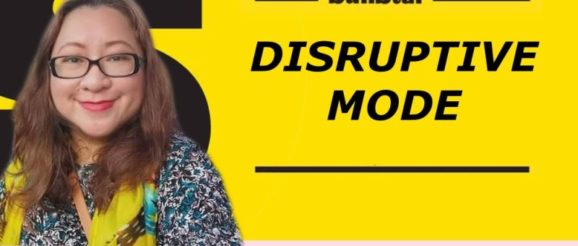Batapa-Sigue: Fearless innovation forecasts for 2020

LAST week, I shared four of my new year’s resolutions and a list of 10 paradigm shifts that I am hoping to see happen soon if we are to successfully survive this decade as a city, and hopefully as a country. This week, I am sharing my fifth resolution which is to share my knowledge and skills to as many people as possible. Last year, I have met with some of my fellow Toastmasters members to plan about creating public speaking workshops for professionals.
This week, I have launched the free digital marketing support for small entrepreneurs in Negros Occidental through the onebacolod.ph site. I wish to help small entrepreneurs and promote the component cities and municipalities of Negros Occidental. Last year, when we were developing the site and linking all LGU sites, I noticed that not even half of the 19 municipalities and 12 cities have their own websites, and only a few have fully interactive functionalities aside from static data.
Our goal is to help assist in digitalizing simple processes like promotions from traditional flyers and physical marketing to virtual materials and digital marketing. Therefore, I humbly offer individual pages for free to small MSMES all around Bacolod and Negros Occidental and all LGUs for their temporary tourism sites. We will also assist in design and creating content.
This is our little gift to Negros Occidental and fellow Negrenses. A team of young digital entrepreneurs in Bacolod can also provide you with free advice on how to promote your places and sell your products online taking advantage of eCommerce technologies.
To pave the way for many more innovation, I am sharing some of my fearless forecasts in the field of innovation in 2020 in this week’s piece.
1. More countryside advocates will demand for development anchored on inclusive and sustainable growth and will no longer accept geographical challenges as a major stumbling block. Development to be sustainable must be inclusive.
2. The more meaningful and relevant development ideas will come from the countryside. Technocrats of Metro Manila and other metropolitan cities need to listen more. The lack of a more engaged process of listening could be one of the major stumbling blocks for the frustrating disconnections I have perceived between technology advocates and end-users, or stakeholders, as a more profound term.
3. Skills-based approach will be more pervasive in the formal education sector. Academicians have no choice but to adapt to Industry 4.0 talent requirements to avoid the eventuality of becoming diploma mills while their graduates seek other forms of practical industry training after receiving their diplomas.
4. Other traditional sectors will start to be enlightened about how technology can be made cost-effective, seamless and ubiquitous but applied extensively for their own requirements. They will pierce the veil of mystery of the so-called digital divide. And unmask those who continuously create the divide for their own interest and profits.
5. Design thinking will find its practical use in many milieus of society as a way to fuse disruptive technologies with community aspirations to create more meaningful solutions.
My earnest and fervent prayer for 2020 is to see more stakeholders start to realize the need to change. I hope I will start to make sense to as many key decision-makers as possible because I can support the ideas and examples with data and initiatives – if one has time to listen.
Our greatest enemy in 2020 is obsolescence. Sadly, this animal is well dressed up so colorfully, it’s like a silent virus. Politics has permeated every corner of society, at the risk of killing innovation before it can even prove its value. The lines have been cleverly blurred in the past decade. But this decade is a decade of purging. Innovation will find a true ally in inclusion. New technologies will force the issue of change and adaptation.
